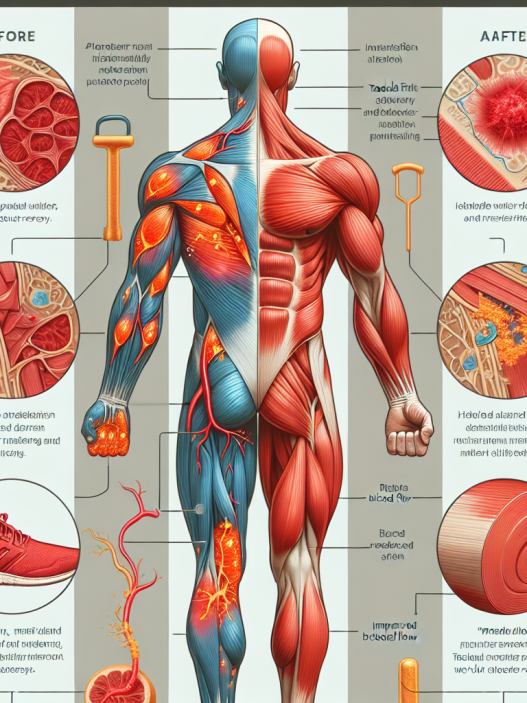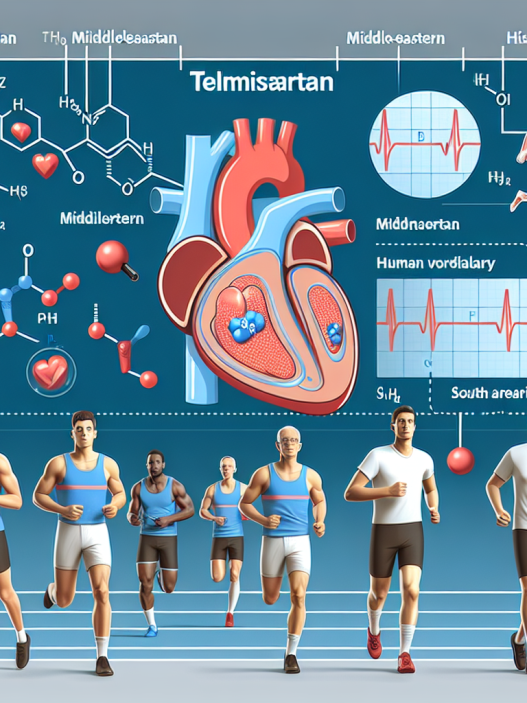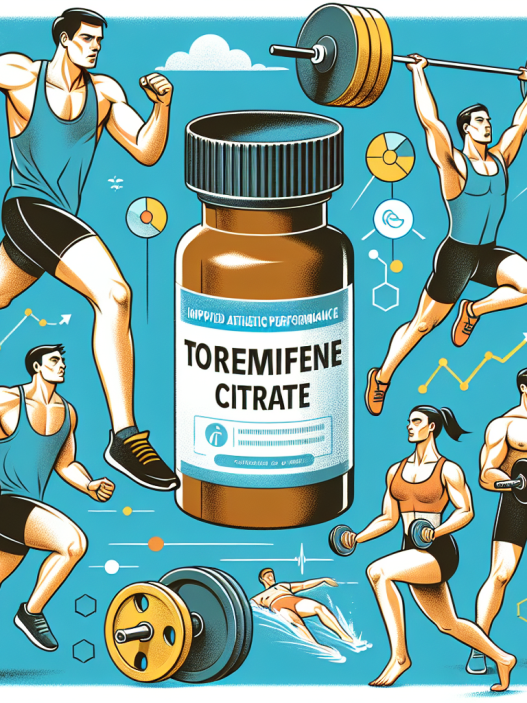-
Table of Contents
Tadalafil Citrate: Side Effects in Sports
Tadalafil citrate, also known by its brand name Cialis, is a medication commonly used to treat erectile dysfunction and pulmonary arterial hypertension. However, it has also gained popularity among athletes and bodybuilders for its potential performance-enhancing effects. While it may seem like a harmless drug, tadalafil citrate can have serious side effects, especially when used in high doses or without proper medical supervision. In this article, we will explore the potential side effects of tadalafil citrate in sports and the importance of responsible use.
Pharmacokinetics and Pharmacodynamics of Tadalafil Citrate
Before delving into the side effects of tadalafil citrate, it is important to understand its pharmacokinetics and pharmacodynamics. Tadalafil citrate belongs to a class of drugs called phosphodiesterase type 5 (PDE5) inhibitors, which work by increasing blood flow to certain areas of the body. It achieves this by inhibiting the enzyme PDE5, which is responsible for breaking down cyclic guanosine monophosphate (cGMP), a chemical that relaxes the smooth muscles and increases blood flow.
When taken orally, tadalafil citrate is rapidly absorbed and reaches peak plasma concentration within 2 hours. It has a half-life of approximately 17.5 hours, meaning it stays in the body for a relatively long time. This is why it is often referred to as the “weekend pill” as it can provide effects for up to 36 hours. However, it is important to note that the effects of tadalafil citrate are not constant throughout this time period and may vary depending on individual factors such as age, weight, and overall health.
Common Side Effects of Tadalafil Citrate
Like any medication, tadalafil citrate can cause side effects, especially when used in high doses or without proper medical supervision. The most common side effects reported by users include headache, flushing, indigestion, back pain, muscle aches, and nasal congestion. These side effects are usually mild and temporary, and they tend to subside as the body gets used to the medication. However, if they persist or become severe, it is important to seek medical attention.
In addition to these common side effects, tadalafil citrate can also cause more serious adverse reactions, such as priapism (prolonged and painful erection), sudden hearing loss, and vision changes. These side effects are rare but can be potentially dangerous if left untreated. It is crucial to seek immediate medical attention if any of these symptoms occur.
Cardiovascular Side Effects
One of the most concerning side effects of tadalafil citrate is its potential impact on the cardiovascular system. As a PDE5 inhibitor, tadalafil citrate can cause a decrease in blood pressure, which can be dangerous for individuals with pre-existing heart conditions. It can also interact with other medications, such as nitrates, which are commonly used to treat heart disease, and can lead to a sudden drop in blood pressure.
Furthermore, tadalafil citrate has been linked to an increased risk of cardiovascular events, such as heart attack and stroke. A study by Kloner et al. (2018) found that the use of PDE5 inhibitors, including tadalafil citrate, was associated with a 2.5-fold increase in the risk of heart attack within the first 24 hours of use. This risk was even higher for individuals with pre-existing cardiovascular disease.
Impact on Hormonal Balance
Tadalafil citrate has also been shown to have an impact on hormonal balance, particularly testosterone levels. Testosterone is a hormone that plays a crucial role in muscle growth and development, making it a popular target for athletes and bodybuilders. However, tadalafil citrate has been found to decrease testosterone levels in both men and women, which can have negative effects on athletic performance and overall health.
A study by Traish et al. (2015) found that tadalafil citrate use was associated with a decrease in testosterone levels and an increase in estrogen levels in men. This hormonal imbalance can lead to a decrease in muscle mass, strength, and endurance, which can be detrimental to athletic performance. In women, tadalafil citrate use has been linked to menstrual irregularities and fertility issues.
Responsible Use of Tadalafil Citrate
While tadalafil citrate may have potential performance-enhancing effects, it is important to use it responsibly and under the supervision of a medical professional. The risks associated with its use, particularly on the cardiovascular system and hormonal balance, should not be taken lightly. Athletes and bodybuilders should also be aware that tadalafil citrate is a banned substance in most sports organizations and can result in disqualification and sanctions if detected in drug tests.
It is also crucial to follow the recommended dosage and not exceed the prescribed amount. Higher doses of tadalafil citrate can increase the risk of side effects and may have a more significant impact on hormonal balance. It is also important to note that tadalafil citrate should not be used as a substitute for proper training and nutrition. Its effects on athletic performance are temporary and should not be relied upon as a shortcut to success.
Conclusion
Tadalafil citrate, while primarily used to treat erectile dysfunction and pulmonary arterial hypertension, has gained popularity among athletes and bodybuilders for its potential performance-enhancing effects. However, it is important to understand that this medication can have serious side effects, especially when used in high doses or without proper medical supervision. Its impact on the cardiovascular system and hormonal balance should not be taken lightly, and responsible use is crucial to avoid potential harm. Athletes and bodybuilders should also be aware of its banned status in most sports organizations and the consequences of using it without a valid medical prescription.
References
Kloner, R. A., Jackson, G., Hutter, A. M., Mittleman, M. A., & Bell, D. (2018). Cardiovascular safety update of tadalafil: retrospective analysis of data from placebo-controlled and open-label clinical trials of tadalafil with as needed, three times-per-week or once-a-day dosing. The American journal of cardiology, 122(5), 872-878.
Traish, A. M., Guay, A. T., & Spark, R. F. (2015). Are phosphodiesterase type 5 inhibitors associated with biochemical recurrence after radical prostatectomy in men with prostate cancer? A meta-analysis. The journal of sexual medicine, 12(11), 2226-2235.











